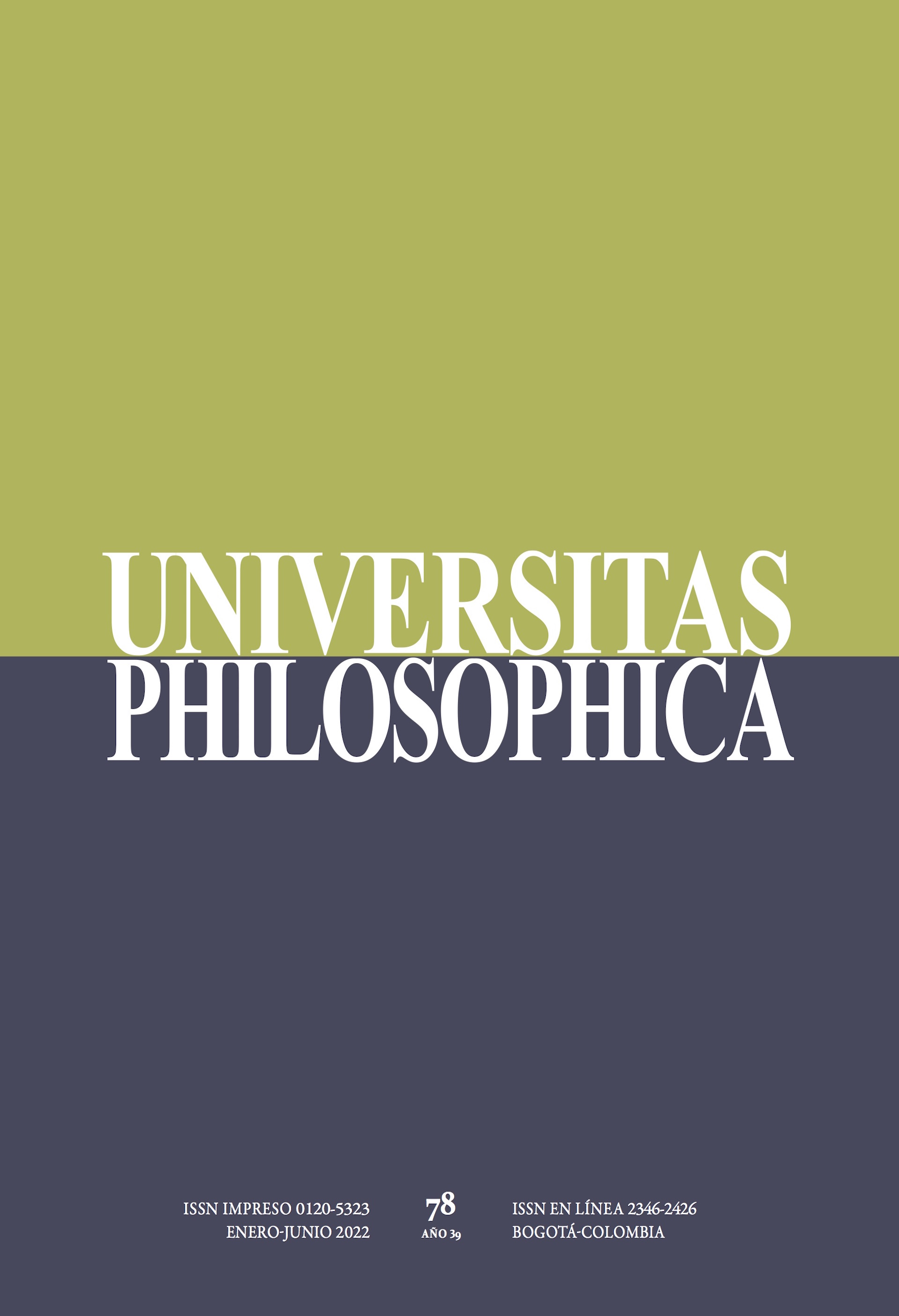The Concept of Despair and Love as an Ethical Project in Søren Kierkegaard
##plugins.themes.bootstrap3.article.details##
In The Sickness Unto Death by Anti-Climacus, despair is a concept emphatically defined as a consequence of the denial of possibility produced by the desire of the human being to insist on being himself or another without God. This denial creates an ineffective relationship of the individual with himself and others, giving rise to the condition of sin, understood in its religious connotation. This leads to the problem of how to become a true Christian in the context of modern egoism, so frequently criticized by the Danish thinker. In the following article I will carry out a hermeneutical analysis of despair considering the context of modern objectivity, as opposed to the concept of love proposed by Kierkegaard as an ethical-existential project in his Works of Love.
desesperación, yo, finitud, infinitud, amordespair, self, finitude, infinity, love
Benbassat, R. (2013). Faith as a Struggle against Ethical Self-Deception. En T. Aylat-Yaguri y J. Stewart (Eds.), The Authenticity of Faith in Kierkegaard’s Philosophy (pp. 18-26). Cambridge Scholars Publishing.
Binneti, M. J. (2006). La posición dialéctica del pecado. En L. B. Archideo (Ed.), El poder de la libertad: una introducción a Kierkegaard (pp. 113-129). CIAFIC.
Cañas, J. L. (2003). Søren Kierkegaard. Entre la inmediatez y la relación. Trotta.
Come, A. B. (1995). Kierkegaard as Humanist: Discovering My Self. McGill-Queen's University Press.
Descartes, R. (1977). Meditaciones metafísicas. Ediciones Alfaguara.
Dreyfus, H. L. (2008). Kierkegaard on the Self. En M. Westphal (Ed.), Ethics, Love, and Faith in Kierkegaard (pp. 11-23). Indiana University Press.
García Martín, J. (2010). Introducción a la lectura de Søren Kierkegaard. Thémata, 43, 231-249.
Golomb, J. (2013). Was Kierkegaard an Authentic Believer? En T. Aylat-Yaguri y J. Stewart (Eds.), The Authenticity of Faith in Kierkegaard’s Philosophy (pp. 1-11). Cambridge Scholars Publishing.
Goñi, C. (2013). El filósofo impertinente: Kierkegaard contra el orden establecido. Trotta.
Guerrero, L. (1993). Kierkegaard: los límites de la razón en la existencia humana. Sociedad Iberoamericana de Estudios Kierkegaardianos.
Guerrero, L. (2004). La verdad subjetiva: Soren Kierkegaard como escritor. Universidad Iberoamericana.
Hoyos, D. (2016). Marx según la subjetividad y desesperación en Kierkegaard. Quaestiones Disputatae: Temas en Debate, 9(18), 31-52. http://revistas.ustatunja.edu.co/index.php/qdisputatae/article/view/1040
Kant, I. (1981). La religión dentro de los límites de la mera razón. Alianza Editorial.
Kant, I. (2012). Fundamentación para una metafísica de las costumbres. Alianza Editorial.
Kierkegaard, S. (1943). El concepto de la angustia: una sencilla investigación psicológica orientada hacia el problema dogmático del pecado original. Espasa-Calpe.
Kierkegaard, S. (1959). Mi punto de vista. Aguilar.
Kierkegaard, S. (1992). Temor y temblor. Labor.
Kierkegaard, S. (2006a). Las obras del amor. Ediciones Sígueme.
Kierkegaard, S. (2006b). O lo uno o lo otro: un fragmento de vida (Vol. I). Trotta.
Kierkegaard, S. (2006c). Diario de un seductor. En O lo uno o lo otro: un fragmento de vida (Vol. I), (pp. 291-432). Trotta.
Kierkegaard, S. (2007). Migajas filosóficas. Trotta.
Kierkegaard, S. (2008a). La enfermedad mortal. Trotta.
Kierkegaard, S. (2008b). Postscriptum no científico y definitivo a Migajas filosóficas. Universidad Iberoamericana.
Kierkegaard, S. (2017). La dialéctica de la comunicación ética y ética-religiosa. Editorial Herder.
Muñoz, Fonnegra, S. (2005). La exigencia ética. Sobre la doctrina del amor en Kierkegaard. Estudios de filosofía, 32, 41-59. https://revistas.udea.edu.co/index.php/estudios_de_filosofia/article/view/12840
Roberts, R. C. (2008). Kierkegaard and Ethical Theory. En M. Westphal (Ed.), Ethics, Love, and Faith in Kierkegaard (pp. 72-92). Indiana University Press.
Platón (1988). Diálogos IV. La República. Editorial Gredos.
Podmore, S. D. (2011). The Abyss of Melancholy. En Kierkegaard and the Self before God (pp. 50-67). Indiana University Press.
Šajda, P. (2013). Does Anti-Climacus’ Ethical-Religious Theory of Selfhood Imply a Discontinuity of the Self? En T. Aylat-Yaguri y J. Stewart (Eds.), The Authenticity of Faith in Kierkegaard’s Philosophy (pp. 60-67). Cambridge Scholars Publishing.
Stokes, P. (2010). Imagination and Agency. En Kierkegaard’s Mirrors: Interest, Self and Moral Vision (pp. 73-94). Palgrave Macmillan.
Strawser, M. (2017). Love is the Highest Good. En S. Minister, J. A. Simmons y M. Strawser (Eds.), Kierkegaard’s God and the Good Life (pp. 16-30 ). Indiana University Press.
Svensson, M. (2013). Polemizar, aclarar, edificar. Clie.
Walsh. S. (2009). Our Human Condition: Anxiety, Sin, Despair, and Becoming a Self before God. En Kierkegaard Thinking Christianly in An Existential Mode (pp. 80-110). Oxford University Press.

This work is licensed under a Creative Commons Attribution 4.0 International License.


